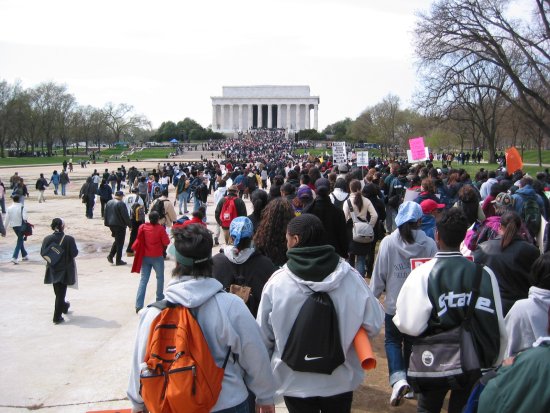
With white Americans predominantly leading the country’s establishments, affirmative action brings forth a chance of inclusion by offering opportunities to underrepresented and deserving groups.
But there is a possibility the Supreme Court can bar the entire policy altogether.
On Monday, Oct. 31, the Supreme Court listened in on affirmative action cases in university admissions programs, specifically Harvard University and the University of North Carolina.
SCOTUS has upheld affirmative action policies since 1978 and most recently in 2016; however, the Republican Party is prepared to implement conservative strategies that ultimately strike down this policy, which would mean a step in the wrong direction.
But first, what’s the big deal about affirmative action?
According to “The Oxford Handbook of Practical Ethics,” affirmative action allows for employers and universities, among other organizations, to embrace diversity in their community by granting opportunities to underrepresented populations “based on their gender, race, sexuality, creed or nationality.”
Although the federal government instituted affirmative action policies under the Civil Rights Act of 1964 and an executive order in 1965, it is practiced differently in many states.
Under House Bill 623, New Hampshire does not allow affirmative action in college admissions and employment as of Jan. 1, 2012. During the Nov. 6, 2012 election, a majority of Oklahoma voters voted to pass Oklahoma State Question 759, which ended affirmative action in college admissions and public employment.
Many of these states that opposed affirmative action do not believe in special treatment towards people of a certain race, gender or class. They say this could, ultimately, implement a certain bias towards people who choose to dictate how their social identities have brought them to this point of admissions for a college or entrance for a job.
Personally, I could not disagree more.
Affirmative action was primarily enacted to give minorities, especially Black people, a fighting chance to be entered into their dream job or school, solely because we, as a country, have deprived them of such an opportunity to do so.
For centuries, we have discriminated against women and communities of color, all for something that was out of their control. Because of that, America did not offer them chances to showcase their intelligence and abilities. Ultimately, it was our close-minded views that robbed minorities of cultivating enriching lives.
Now, we are giving that chance back to them.
What people fail to understand is that affirmative action grants “qualified” minorities entrance into organizations. Programs that specialize in diversity outreach and cultural diffusion merely look for people who are not white nor male, but are just as intelligent, if not more, than their counterparts. This point simply renders the ‘implicit bias’ argument useless, as affirmative action seeks individuals who are qualified but not fitting the (stereo)typical bill.
And to those who feel personally attacked by affirmative action, having not been a product of said policy, I have to ask: why?
The vast majority of Americans will never be directly affected by these policies. Of the approximately 2,000 four-year not-for-profit colleges and universities in the United States, only 352 consider race in admissions, or about 18 percent. Only 124 “highly selective” colleges consider race as a factor. Thus, these highly selective, race-considering institutions represent only about 6% of four-year institutions in the United States.
With that in mind, many Americans should not feel compelled to oppose the policy solely because affirmative action takes away their spots. This only comes from a place of fear, as white Americans were privileged enough to live in a time where their only competition was themselves.
Now that there are other contenders in the mix, most white Americans fearing for affirmative action are more so fearing for the competition.
Even with the argument that more spots are going to minorities, which is false, what would be the problem if they are well-deserving applicants? At the end of the day, the job or spot in a university goes to the best applicant, but affirmative action upholds the idea of giving disenfranchised minorities that chance to put their best foot forward in a world where the rug is swept out from underneath them.
I would also argue that, by nature, the system is not only race based, but also class and gender based. Going beyond racial identity, many individuals struggle through other social components that, in most cases, make up their journeys. To discount such journeys and how that contributes to their identity is ultimately doing a disservice to the civil liberties America supposedly upholds.
Additionally, with the encouragement of affirmative action, America is not just allowing minorities the opportunity to flourish in their field, but widening the country’s stagnant mindset to varied beliefs.
Ultimately, affirmative action is promoting what this country fails to do: diversity.
Many communities of color contribute a vast arrangement of promising ideas and concepts, showing how their companies and schools strive in their presence. We have to accept that good ideas can come from all over the country. We cannot limit our point of view to the everyday white American male.
And if affirmative action programs are defeated, this tells me that the Supreme Court truly does not have the country’s best interests in mind.
But would that really be a surprise?












